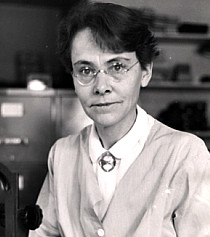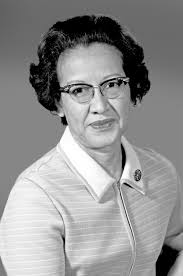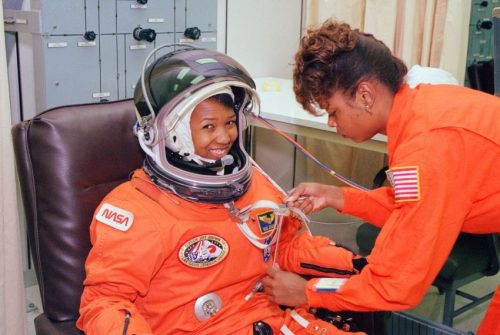Women have been underrepresented in STEM throughout history. While the number of women in scientific and engineering fields is growing, there are still relatively few of them compared to the overall workforce. Despite this gender gap, women have made some of the most significant contributions in scientific history. You may have heard of some of these women, but you may be unfamiliar with most of them. Here are ten women in STEM who changed history.
1. Ada Lovelace

August Ada King, the Countess of Lovelace, wrote the first computer algorithm in history. She wrote the algorithm for Charles Babbage’s analytical engine, an early computer, but died before she could see it work.
Lovelace’s mother encouraged her to study math so she wouldn’t follow in the artistic footsteps of her famous poet father, Lord Byron. This focus on math paid off, as Lovelace essentially became the founder of computing.
2. Elizabeth Blackwell
Elizabeth Blackwell was the first woman to receive a doctorate of medicine in America. She graduated from Geneva Medical College in New York way back in 1849, before women could even vote.
Blackwell devoted her life to helping other women in medical fields. On top of her work as a doctor, she published numerous books about women in medicine.
3. Florence Seibert
At a time when most women didn’t attend college, Florence Seibert got a doctorate in biochemistry. The Yale graduate went on to be a college professor and researcher.

Seibert spent 27 years at the University of Pennslyvania, where she started to research tuberculosis (TB). Her method for TB testing became the standard, and doctors still use it today.
4. Barbara McClintock
After studying genetics for more than 40 years, Barbara McClintock recieved the Nobel Prize in Physiology in 1983. The prize honored her discovery that genes can change their position within a chromosome.
James Watson, one of the discoverers of DNA, cited McClintock as an academic influence. Though you may not know her name, Barbara McClintock is one of the most influential figures in genetics.
5. Chien-Shiung Wu
Chien-Shiung Wu moved to America from China in 1936 and graduated from UC Berkeley with a doctorate in physics four years later. Wu worked as a physics instructor and researcher but is most famous for her work on the Manhattan Project.

With the Manhattan Project, Wu helped develop the atomic bomb. After the war, she and two male colleagues disproved a law of physics, for which her colleagues would receive Nobel Prizes. Despite her contribution, Wu went unrecognized and unrewarded.
6. Katherine Johnson
Katherine Johnson started college when she was only 15, despite gender and racial prejudices at the time. In 1953, she began working for the organization that would later become NASA.
Johnson’s calculations helped numerous space missions, from Project Mercury to Apollo 11. She received the Presidential Medal of Freedom in 2015 for her many contributions to math and science.
7. Lydia Villa-Komaroff
Lydia Villa-Komaroff served many roles in science, from researcher to administrator to CEO. She’s probably most well known for her work in molecular biology. Most notably, she discovered that bacteria can produce insulin, which she published in 1978.
Villa-Komaroff was the 2008 National Hispanic Scientist of the Year and won the MIT Morison Prize in 2016, among other achievements.
8. Adriana Ocampo
Another noteworthy Hispanic scientist, Adriana Ocampo, is a planetary geologist for NASA. Ocampo worked on several satellite missions, including the Viking mission to Mars and the Galileo mission to Jupiter.
Ocampo also spearheaded the Juno mission to Jupiter and continues to work for NASA. She was named one of Discover Magazine’s 50 Most Important Women in Science in 2002.
9. Mae Jemison

In 1992, Mae Jemison became the first African American woman to go to space. She was one of only 15 chosen candidates from a list of around 2,000 applicants. But she’s also more than just an astronaut.
Jemison earned her doctorate from Cornell University in 1981. Before joining NASA, she served as a doctor in the Peace Corps, working in Sierra Leone and Liberia.
10. Katie Bouman
Just a year ago, Katie Bouman made headlines for her work in the Event Horizon Telescope project. Bouman created an algorithm for this telescope network that captured the first image of a black hole in history.
Bouman joined the Event Horizon project at just 23 years old. Six years later, she and her colleagues made history by taking the first and only picture of a black hole.
Women in STEM Then and Now
Sexism is still a prominent problem in scientific fields, but more and more women are entering STEM. Now young people everywhere have female role models, such as noteworthy keynote speakers and groundbreaking scientists.
Women make up just 33.7% of STEM PhDs today, proving that the sciences are still male-dominated. Despite this, women have made some of the most important contributions to STEM throughout history. You may not know their names, but their achievements have driven science forward to where it is today.
